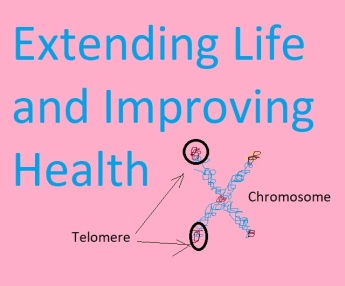 Metadichol® strikes again by improving the quality of life, eliminating disease, and extending life expectancy. This plant-based substance or food has shown many ways that it acts to reduce disease and improve health in general. Now the developer, Dr. P. R. Raghavan of Nanorx, Inc., has shown that it increases telomerase or the enzyme for maintaining and increasing the length of telomeres. From the press release: Aging is a law of nature and unavoidable. Instead of targeting a multitude of diseases that confront us as we age Metadichol® is about correcting the root cause of disease.
Metadichol® strikes again by improving the quality of life, eliminating disease, and extending life expectancy. This plant-based substance or food has shown many ways that it acts to reduce disease and improve health in general. Now the developer, Dr. P. R. Raghavan of Nanorx, Inc., has shown that it increases telomerase or the enzyme for maintaining and increasing the length of telomeres. From the press release: Aging is a law of nature and unavoidable. Instead of targeting a multitude of diseases that confront us as we age Metadichol® is about correcting the root cause of disease.
Telomeres are proteins that are at the ends of each chromosome to prevent the chromosome from sticking to other chromosomes and to protect the genes inside by keeping the chromosome from unraveling. The best way to think about how telomeres act is to imagine the end of a shoe string. How many times have you had the plastic protector on the end of the shoe string come off, and the shoe string begin to fray and unravel? The telomeres also act, during the duplication process of RNA/DNA, as a shield to prevent mishaps.
It has been shown that there are a limited number of reproduction of cells as each time the reproduction occurs, the length of the telomeres is reduced. In other words, the length of your telomeres is an indication of life expectancy. As you age, the telomeres shorten and allow the opportunity for chronic disease, like cancer. By increasing the amount of telomerase, the enzyme that keeps telomeres healthy, Metadichol® acts to improve health and extend life.
From a recent paper: The Quest for Immortality: Introducing Metadichol®, A Novel Telomerase Activator, Journal of Stem Cell Research and Therapy.
Link to paper: Telomerase-paper
Abstract
Humans are keenly aware of their mortality. Given a limited time what we do with our life is a reflection of knowledge of our mortality. In 2009 the Nobel prize in medicine to Jack W Szostak, Elizabeth Blackburn, and Carol W Greider for their work on Telomerase and scientific research exploded in this area. Telomere protect chromosome ends and the Telomerase enzyme maintains Telomere length. This activity of Telomerase is essential in aging and stem cells and achieving longer life spans.
Telomerase is expressed in 85% of human cancer cell lines, but its enzymatic activity is not detectable in most human somatic cells which constitute the vast majority of the cells in the human body. There is a need for increased telomerase activity in stem cells for use in the treatment of therapies where there is an active role for telomerase. Umbilical Cord Blood (UCB) provides an attractive source of stem cells for research and therapeutic uses. Work shown here characterizes the gene expression changes from Umbilical cord cells differentiate toward telomerase on treatment with Metadichol®.
Metadichol® is a nanoemulsion of long-chain alcohols that is nontoxic. It is a mixture of long-chain alcohols derived from food. The work presented here is about the effect of Metadichol® on Telomerase expression profile in Umbilical cord cells. Our results using q-RT-PCR show increases of mRNA telomerase expression by Sixteen-fold at one picogram but down-regulates expression at higher concentrations of 100 pg, 1 ng, 100 ng and one microgram per ml concentration. Western blot studies showed expression of Telomerase protein which is slightly higher than control at one picogram, i.e., Telomerase protein expression continues at replacement level. Since it is devoid of toxic effects, it can be directly tested on humans and is in use today as an immune boosting supplement. Metadichol® increases expression of Klotho an anti-aging gene expression in cancer cell lines by Four to Ten-fold, and Klotho gene has been documented to inhibits the growth of cancer cells. Metadichol® also inhibits TNF, ICAM1, CCL2, and BCAT1 which that is associated with proliferation in yeast and increased metastatic potential in human cancers. It paves the way for safe clinical testing and research and study of Telomerase biology and its use in humans.
The brilliance of Metadichol is that it is a food and has no known side effects—what a great nutraceutical. –by Mark Pegram

 Clotho is one of the three Greek fates that are responsible for the thread of life in Greek mythology. Clotho is known as the spinner of the thread while the others draw out and cut. In our understanding of physiology, we have named the gene responsible for reduced chronic disease—Klotho. The up regulation of klotho appears to significantly reduce chronic disease. A few to consider are cancer, diabetes, rheumatoid arthritis, and coronary artery disease. Have we stumbled unto the gene that is responsible for the fountain of youth?
Clotho is one of the three Greek fates that are responsible for the thread of life in Greek mythology. Clotho is known as the spinner of the thread while the others draw out and cut. In our understanding of physiology, we have named the gene responsible for reduced chronic disease—Klotho. The up regulation of klotho appears to significantly reduce chronic disease. A few to consider are cancer, diabetes, rheumatoid arthritis, and coronary artery disease. Have we stumbled unto the gene that is responsible for the fountain of youth?